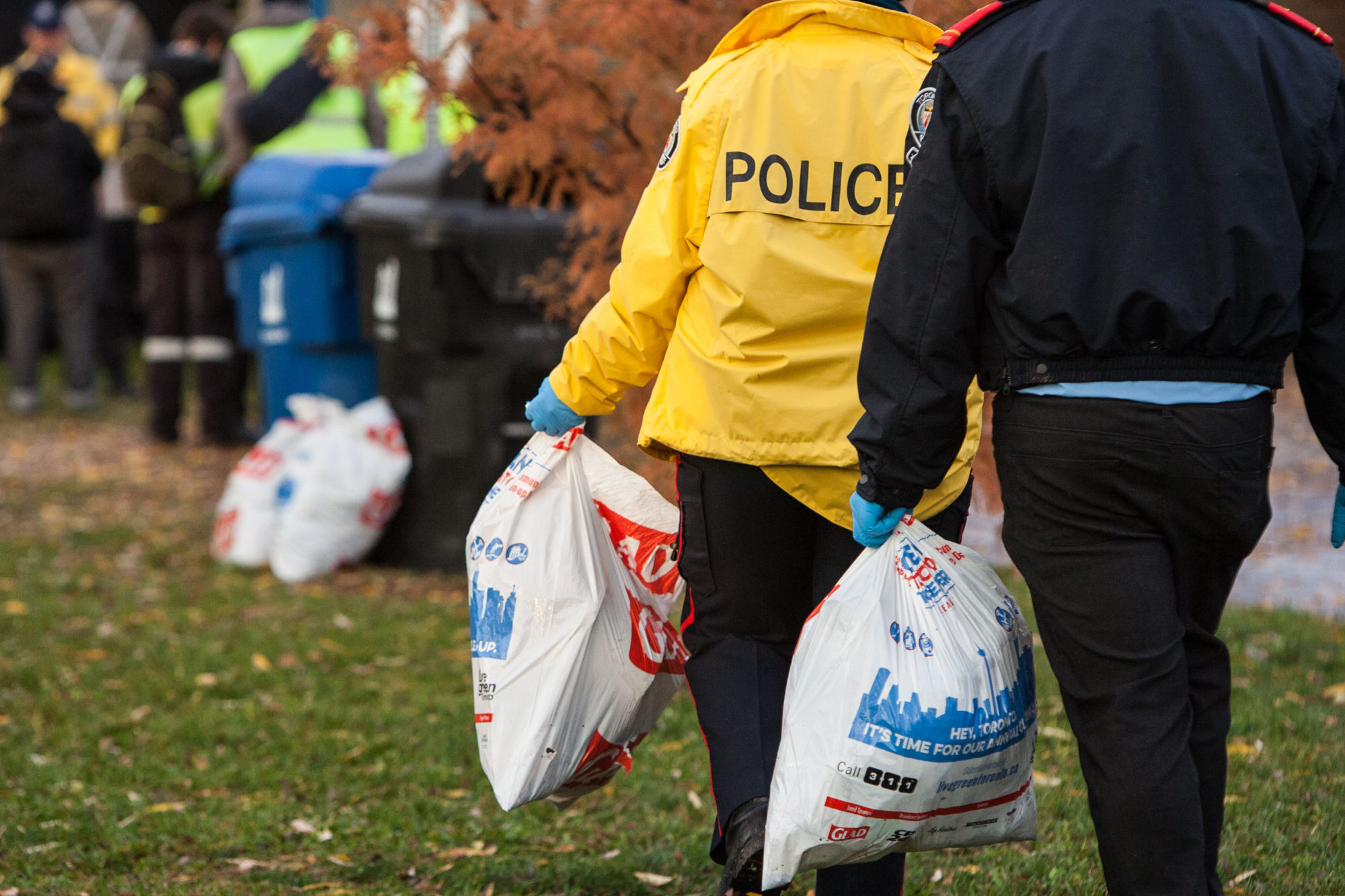The Toronto police are sorry about Project Marie. Sort of. Kind of. Okay, not really.
They’re sorry, they say, for failing to consult their LGBT liaison before launching the undercover park sting that saw 77 people, mostly men, charged primarily for having consensual sex or soliciting sex in Marie Curtis Park last fall. According to the police, if they had done better consultation, they would have conducted a more sensitive and robust outreach effort.
Does that mean they wouldn’t have sent undercover cops into the park to target men who have sex with men? Maybe police would have handed the matter off to bylaw officers? Or would the whole project would have been scrapped?
We really don’t know.
Instead, we’re left trying to figure out if Toronto police will end up behaving any differently in the future.
It’s hard to be optimistic. After all, it was only a few short months after Chief Mark Saunders issued a sort-of apology for the 1981 bathhouse raids that Project Marie commenced.
As far as we know, anyone who contested the charges that related to Project Marie had them dropped. But the same applies to the dozens and dozens of people who have been arrested in raids of cannabis dispensaries across the city. And yet the police continue to raid.
From the outside, it’s hard to discern how police will operate in the future because they’re given so much leeway and they’re not directly accountable to the public. Over 70 people were charged in a clearly ill-conceived operation here, but there’s no assurance it won’t happen again.
At the end of the day, this sting was driven by other park users who complained about sexual activity that they didn’t like encountering. (Though a few of them alleged they were sexually assaulted, which is certainly a police matter.)
But it’s the same story over and over. People have competing uses for public space. One side is seen as legitimate and the other isn’t. And the police say it’s their duty to keep investigating complaints from citizens who are squeamish about or resent park sex.
This is what happens when people have to live in a city with others who act very differently than they do, or occupy a different social strata. There will be friction, there will be disagreements, there will be people who feel like they’re being impinged upon.
And the police are used as a tool by one side to impose what they believe to be proper and good on the other.
It’s easy to look back at the history of Church-Wellesley Village, a gay mecca in a moralistic city, and see the same story.
The steps outside of the Second Cup at the corner of Church and Wellesley were a gathering spot for gay men and celebrated as such. But when it was non-white and homeless youth that started hanging out there, the coffee shop ended up destroying the steps entirely in 2004.
Sex workers, mostly trans women of colour, were pushed off of Church Street in the 1990s by the police and at the behest of businesses and residents, including queer people, and had to ply their trade deeper in the downtown east. And now they’re being pushed out again.
While the crackdown on cruising in Marie Curtis Park has the additional element of sexual stigma attached to it, the fundamental dynamics are the same.
I get a little morose when I think of these morality struggles playing out over and over. Sometimes I think we might be able to live cheek-to-jowl with people who are different than ourselves. But then I read articles about the “thugs” that have taken over the Village and see the same logic at play.
People who are hurting others should be stopped, but too often we just end up painting people with a broad-brush of criminality and asking the police to step in (which they’re all too willing to do).
Project Marie might be over. The Toronto police may even have a few regrets. But there’s hundreds of Project Maries taking place in this city all of the time. And I don’t see how that’s ever going to stop.

 Why you can trust Xtra
Why you can trust Xtra


